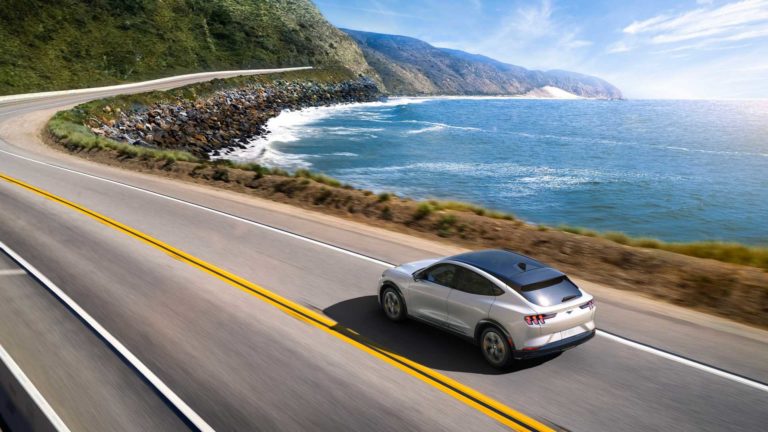Though many people think that the electric vehicle industry is slowing down, sales numbers in the United States alone say otherwise. Now that the third quarter of 2023 is behind us, let’s check in on how the various automakers are doing.
According to sales data analyzed by InsideEVs, during Q3 the 19 brands we mention below sold roughly 130,000 all-electric vehicles. That represents a 98% year-over-year increase from 2022. This strong growth trend is expected to continue into next year.
It’s worth noting that not all manufacturers report their sales results in the U.S., especially the newer companies like Tesla, Rivian, Polestar or Lucid. Tesla, for example, does not break out sales by country or region.
But thankfully for us, the list of traditional carmakers that report their all-electric car sales increased in recent years. In today’s post, we will focus on the battery electric vehicle (BEV) sales volume from 19 brands, for which data are available: Audi, BMW, General Motors’ BrightDrop delivery van division, Cadillac, Chevrolet, Ford, Genesis, GMC, Hyundai, Kia, Lexus, Mazda, Mercedes-Benz, Nissan, Porsche, Subaru, Toyota, Volkswagen and Volvo.
BEV Sales By Brands – Q3 2023
In Q3, Ford sold the highest number of all-electric vehicles (again, excluding Tesla) in the U.S.—20,962 – despite various challenges that impacted the company earlier this year.
The runner-up was Hyundai with at least 16,738 electric cars, and that’s not counting data for the Kona Electric, which is bundled in with the gas model. This time, Chevrolet was third with 15,872 units, mostly Bolt EV/Bolt EUVs, which soon will be discontinued.
Our new tree map chart reveals also a relatively strong position for BMW (13,079), Volkswagen (10,707) and Mercedes-Benz (10,424), while Kia was the last established brand with a five-digit volume (10,016).
* Excludes Tesla and other brands for which data was not available
** Hyundai sales without the Hyundai Kona Electric model
BEV Sales By Brands – Q1-Q3 2023
If we take a look at the first nine months of the year, we find that the top three traditional brands in terms of all-electric car sales volume were Chevrolet at 49,531 units and Ford at 46,671 units. The difference between the two is relatively small, so the race for the top BEV brand after Tesla is on.
The best of the rest is Hyundai, with at least 33,624 units. Around 30,000 we can see also BMW (31,043), Mercedes-Benz (29,691) and Volkswagen (27,155). U.S. sales of Rivian are unknown, but according to Experian (via Automotive News), Rivian noted 30,240 new registrations during the period so sales also might be higher than 30,000.
* Excludes Tesla and other brands for which data was not available
** Hyundai sales without the Hyundai Kona Electric model
The above tree map chart shows us how serious particular manufacturers are about all-electric cars, compared to other mainstream or premium companies. For example, Toyota with just 6,486 BEVs is at just over a third of Nissan or a fourth of Volkswagen.
The total volume of the 19 mentioned brands in Q1-Q3 period amounted to over 316,000, which is some 94 percent more than a year ago. The established brands are gaining share in the BEV segment, which as of the end of September exceeded 850,000 units (including almost 490,000 or 57 percent for Tesla), according to Experian.
We are eager to see what the fourth quarter will bring. Stay tuned for more data on which brand is the most electrified. If you are interested in seeing more detailed sales results for the individual brands, please check our previous reports:




